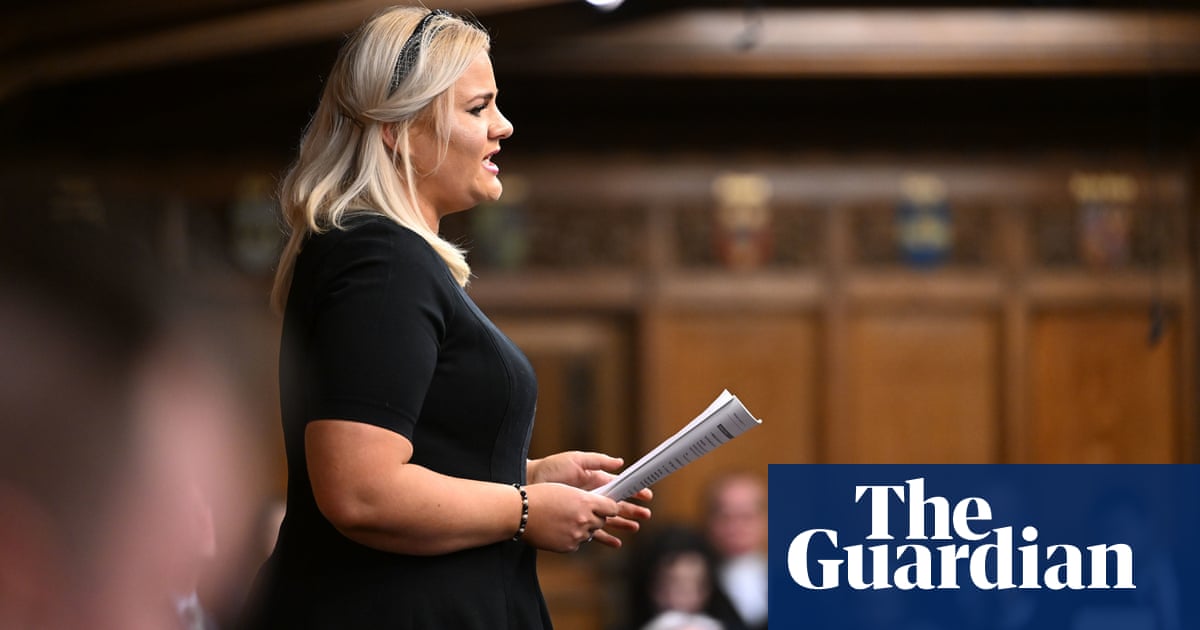
Since the murders of Batley and Spen MP Jo Cox and Southend West MP Sir David Amess, we’ve seen a rising tide of viciousness aimed at locally elected politicians, by apparently fairly ordinary constituents. There are all manner of reasons, often surprisingly banal.
Female MPs are targeted for their gender. MPs from an ethnic minority background are disproportionately the target of racial or religious hatred. And some local MPs are targeted simply because they’re politicians, tasked with fixing problems they’re unable to fix. With a general election looming and MPs deciding which battles they can safely pick, there are fears the escalating hostility is a threat to democracy.
‘There’ll be no decent people left. Only the narcissists and thrill-seekers who don’t mind the risk’
There are plenty of political explanations for the animosity, but when I started writing my play The Constituent, in the midst of a worldwide pandemic, beleaguered by lockdown, I began asking existential questions I’d never asked myself before. Is this climate of adversarialism here to stay? Is compassion and empathy becoming dangerous? How do MPs motivate themselves to serve a hostile public? What drives a constituent to threaten the politician they voted for? And as one character in my play asks: “Is this a spike in threat – or is it just the start?”
Most members of parliament genuinely want to make a difference to our lives; a very few just want to make a difference to their own. But with a fractious public uninterested in nuance, is Britain’s policy of allowing constituents open access to their MPs and its belief in “tolerance” and freedom of speech in danger of going extinct?
To find answers, I talked to a small handful of MPs and visited the House of Commons. I got to know Birmingham Yardley MP Jess Phillips, who once received more than 600 rape threats in a single night. A Ukip MEP candidate also sent her a tweet saying: “I wouldn’t even rape you.” In a video, he later added: “With enough pressure, I might cave.” The Ukip leader defended the comments as a form of “satire”. Phillips, who has also had countless death threats and had combative constituents stroll into her constituency office to abuse her face to face, calls these attacks “live-action trolling”.
An unusually resilient, approachable and empathetic politician, Phillips tries to hear out angry constituents, reasoning that if you send them away without listening to them, they’re just going to take it out on someone else. As shadow minister for domestic violence and safeguarding, she knows that simply locking up her abusers without addressing their problems runs the risk of making them even more volatile when they get out.
But engaging with the public is becoming a tense and exhausting dance, whoever you represent – and it’s getting more dangerous. To be an effective politician, an MP needs to engage openly with the local electorate, which is where a lot of the threats can come from. Most people feel safe in their own community. MPs increasingly don’t. As Anna Maxwell Martin, playing the opposition backbencher, says in my play: “That’s where I’m most vulnerable.” When she tries to show compassion for James Corden’s loquacious ex-serviceman, one of her biggest fans, the trouble begins.
On university campuses, people are regularly “no-platformed” for their views. In the entertainment business, it’s de rigueur to “cancel” people we feel threatened by. But in the real world, where people see their elected representative as the “last line of defence” when other public services have failed them, an MP can’t necessarily pick and choose who they work for. They feel a moral obligation to take the risk but increasingly are tortured by the cognitive dissonance of not being able to trust the people who voted for them. Many MPs genuinely care deeply for their constituents, happy to engage in the inevitable push and pull, but the growing exigency to deploy security devices against them – from anti-explosives bags to stab vests – creates a painful inner conflict.
Policing threat is difficult due to its psychological complexity and the oft-cited lack of resources. There is no dedicated personal security for MPs in their constituencies, only for ministers. No matter what the government tells us, the reality is that backbenchers tend to have to fend for themselves, unless they can prove they’re in grave danger. The damage to an abused MP’s psyche can be enormous, causing intolerable stress, depression and a sense of futility.
A prime minister can afford a Harley St psychotherapist but backbenchers are offered something more cut price – and therapy is a cumbersome option because parliamentary culture is riven with passive aggression, back-stabbing, harassment and betrayal already. Some are resilient where others aren’t. Some feel threatened when others don’t. Everyone has a different threshold for pain. It requires exceptional therapists to understand the true context of extreme anxiety and depression.
Former prime minister Theresa May has called for “action on abuse and intimidation which deters people from putting themselves forward for election”. It could also compel them to avoid contentious policies. In hindsight, her characterisation as a “bloody difficult woman” by a Tory grandee was just the start of the misogyny running rife now. But she has also put her finger on a wider question. What sane person would want to be a politician in the future? If our children grow up fearful of going into politics, what hope is there for parliament? Or as Anna’s character in my play puts it: “There’ll be no decent people left, only the narcissists and thrill-seekers who don’t mind the risk.”
Charlotte Nichols, the 33-year-old MP for Warrington North, told me she’d been offered various kinds of self-defence training by the government, having previously learned martial art krav maga with the encouragement of another MP. Former secretary of state for health Matt Hancock took up krav maga when an anti-vaccine protester shoulder-charged him. “I can’t recall a time when I felt as intimidated as this,” he complained to a court. But self-defence classes don’t ward off online attacks, which are like road rage, allowing abusers anonymity and a quick getaway.
And now an insidious new trend is emerging, which could take years to come to grips with. Abusers are evolving their methods to weaponise their views, cultivating their perceived victimhood and using the law as a tool. Walthamstow MP Stella Creasy experienced the phenomenon at its most vexatious when her harasser reported her to social services – for being an “unfit mother”. Feminism, the man argued slyly, counted as “extreme views” and she was causing her children harm. It triggered a mandatory investigation by the local council and her children now have a record with social services, despite Creasy being cleared.
Primal instincts have been stirred into action and adrenaline is free-flowing. Former attorney general and MP for Torridge and West Devon Geoffrey Cox’s pantomime baiting of colleagues during Brexit as “cowards and traitors” in a “dead parliament” gave the impression that combatants were welcome. Boris Johnson bloviated about “surrender” like a man with mutton chops and a musket. “Partygate” saw cabinet ministers parading double standards in front of a traumatised electorate with such impunity during lockdown that it verged on provocation. In the immediate aftermath, incensed voters with all manner of political gripes felt justified in going on the attack. Some still think it’s their responsibility to root out hypocrisy and reflexively vent when they feel “betrayed”.
In The Constituent, James’s increasingly desperate constituent, lobbying to change family court laws, invokes the same vernacular when he accuses his local MP of being “a dead person … dead from the neck up”. Whether it’s an implied threat or he’s simply “being rude” becomes a bone of contention, but it drives the escalating paranoia.
In January, the Jo Cox Foundation published its own comprehensive inquiry, the Jo Cox Civility Commission, articulating its fears for the future of democracy and putting forward strategies. One of the more intriguing is the idea of tackling “political illiteracy – a lack of understanding of what political representatives do”. The logic being that if more constituents understood that their local MP might not actually be able to help them – with council, legal or planning issues – there may be less harassment. But the realpolitik of an election is that politicians win by convincing voters they can fix everything. Underselling their talents or shrinking from promises is not in their nature. Believing their promises is no longer in ours.
The Constituent is at the Old Vic, London, until 10 August












